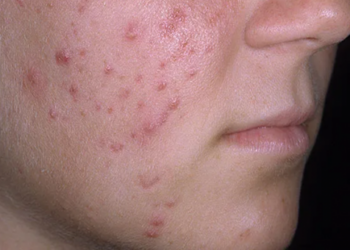WHO said one-third of the world’s population remains unvaccinated including two-thirds of health workers and three-quarters of older adults in low-income countries.
The World Health Organisation (WHO) has revealed that more than one million COVID-19-related deaths have been recorded globally in 2022.
WHO’s Director-General, Tedros Ghebreyesus, who revealed this in a live briefing on Thursday, called for increased vaccination efforts.
“This week, we crossed the tragic milestone of 1 million reported deaths so far this year. We cannot say we’re learning to live with COVID-19 when 1 million people have died from COVID-19 this year alone.
“Once again, we ask all governments to strengthen their efforts to vaccinate all health workers, older people and others at the highest risk on the way to 70 per cent vaccine coverage for the whole population,” he said.
As of 25 August, data from the US Centre for Disease Control and Prevention (CDC) shows that a total of 596,759,069 COVID-19 cases and 6,455,107 deaths have now been recorded since the outbreak in 2020.
Increased vaccination
Mr Ghebreyesus noted that as a result of partnership with UNICEF to speed up vaccine coverage, countries, particularly in Africa have now improved towards vaccinating 100 per cent of their health workers and older people.
He said: It’s pleasing to see that some countries with the lowest vaccination rates are now making up ground, especially in Africa.
“In January this year, WHO, UNICEF and partners established the COVID-19 vaccine delivery partnership to accelerate vaccine coverage in the search for countries that were below 10 per cent coverage, all but six of which are in Africa.
“Just six months later, only 10 countries still have less than 10 per cent coverage, most of which are facing humanitarian emergencies.
“It’s especially pleasing to see coverage of high-priority groups improving, with many countries making impressive progress towards vaccinating 100 per cent of health workers and 100 per cent of older people.”
However, he added that much more needs to be done, as one-third of the world’s population remains unvaccinated including two-thirds of health workers and three-quarters of older adults in low-income countries.
He urged “all countries at all income levels to do more to vaccinate those most at risk to ensure access to life-saving therapeutics to continue testing and sequencing and to set tailored proportionate policies to limit transmission and save lives.”
On Monkeypox
The WHO boss stated that last week, the number of weekly reported cases of monkeypox which has now spread to 90 countries fell by more than 20 per cent globally.
CDC data shows that as of 24 August, 98 countries have recorded 45,535 cases, with 91 of the countries having not historically reported monkeypox.
Mr Ghebreyesus added that the manufacturer of the monkeypox vaccine, Bavarian Nordic, signed an agreement with WHO’s regional office of the Americas to support access to its vaccine in Latin America and the Caribbean.
“We thank the Bavarian Nordic for this agreement, and we hope that it will help to bring the outbreak under control in the region. WHO continues to encourage all countries to establish vaccine effectiveness studies to ensure data collection even while enhancing access,” he said.








